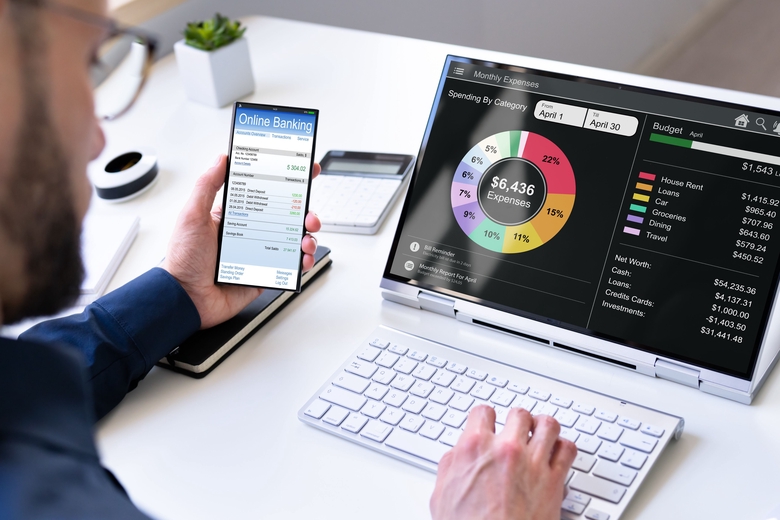Managing personal finances effectively is crucial in today's fast-paced digital world. Online budgeting tools have revolutionized the way individuals and families handle their finances, providing an easy and efficient way to track income, expenses, and savings. With a plethora of options available, choosing the right tool can make a significant difference in achieving your financial goals.

Here's a look at some of the best online budgeting tools for 2024, designed to help you take control of your finances.
The Importance of Budgeting
Budgeting is the foundation of sound financial management. It allows you to:
Track Spending: Understand where your money goes each month.
Save Money: Allocate funds for savings goals, such as an emergency fund or retirement.
Avoid Debt: Plan expenses to prevent overspending and reduce reliance on credit.
Achieve Financial Goals: Set and reach short-term and long-term financial objectives.
Top Online Budgeting Tools for 2024
Here are some of the best online budgeting tools available this year, each offering unique features to cater to different financial needs:
Mint
Mint remains one of the most popular and comprehensive budgeting tools available. It offers a wide range of features, including:
Automatic Expense Tracking: Links to your bank accounts and credit cards to automatically categorize transactions.
Budget Creation: Helps you create and stick to a budget by setting spending limits for different categories.
Bill Reminders: Notifies you of upcoming bills and due dates to avoid late fees.
Free Credit Score Monitoring: Provides insights into your credit health.
You Need a Budget (YNAB)
YNAB is known for its unique approach to budgeting, emphasizing proactive financial management. Key features include:
Goal-Oriented Budgeting: Encourages users to assign every dollar a job, focusing on priorities and financial goals.
Real-Time Updates: Syncs with your bank accounts to provide up-to-date financial information.
Debt Payoff Tools: Helps create a plan to pay off debt efficiently.
Educational Resources: Offers workshops and resources to improve financial literacy.
Personal Capital
Personal Capital combines budgeting with robust investment tracking features. It is ideal for those who want to manage their day-to-day expenses while also keeping an eye on their investment portfolio. Features include:
Cash Flow Management: Tracks income and expenses to help you manage your cash flow effectively.
Investment Tracking: Provides insights into your investment performance and asset allocation.
Retirement Planning: Offers retirement planning tools to ensure you stay on track with your long-term goals.
Net Worth Calculation: Calculates your net worth by aggregating all your financial accounts.
Goodbudget
Goodbudget follows the envelope budgeting system, making it easy to allocate funds for specific expenses. Its features include:
Envelope Budgeting: Allows you to divide your income into digital envelopes for different spending categories.
Expense Tracking: Manually enter transactions to track spending against your budget.
Sync Across Devices: Access your budget on multiple devices, making it easy to share with family members.
Debt Management: Helps you allocate funds to pay off debt.
EveryDollar
Created by Dave Ramsey's team, EveryDollar focuses on zero-based budgeting, where every dollar is assigned a purpose. Key features include:
Simple Budgeting: User-friendly interface to create and maintain a budget.
Expense Tracking: Manually enter expenses to stay on top of your spending.
Customizable Categories: Tailor budget categories to fit your unique financial situation.
Financial Peace University Integration: Access to educational resources and support through Financial Peace University.
PocketGuard
PocketGuard helps you control your spending by showing how much disposable income you have after accounting for bills, goals, and necessities. Features include:
In My Pocket: Displays the amount of money available to spend after covering bills and savings goals.
Expense Tracking: Links to your accounts to automatically track spending.
Customizable Categories: Personalize spending categories to suit your needs.
Savings Goals: Helps you set and track progress toward savings goals.
Choosing the Right Budgeting Tool
Selecting the right budgeting tool depends on your financial goals, preferences, and habits. Consider the following factors:
Ease of Use: Choose a tool with an intuitive interface that fits your tech comfort level.
Features: Look for features that align with your financial goals, such as debt payoff tools, investment tracking, or bill reminders.
Cost: Some tools are free, while others require a subscription. Consider your budget and the value offered by the tool.
Syncing and Security: Ensure the tool can sync with your financial accounts securely and provides robust data protection.
Tips for Successful Budgeting
Using an online budgeting tool is just the first step. Here are some tips to maximize its effectiveness:
Regularly Review Your Budget: Check your budget regularly to stay on top of your finances and make adjustments as needed.
Set Realistic Goals: Set achievable financial goals to stay motivated and track progress.
Be Honest: Accurately track all income and expenses to get a true picture of your financial situation.
Plan for the Unexpected: Allocate funds for emergencies and unexpected expenses.
Online budgeting tools are invaluable for anyone looking to take control of their finances in 2024. Whether you're a seasoned budgeter or just starting, tools like Mint, YNAB, Personal Capital, Goodbudget, EveryDollar, and PocketGuard offer a variety of features to help you manage your money effectively. By choosing the right tool and following best practices, you can achieve your financial goals and enjoy greater financial stability.